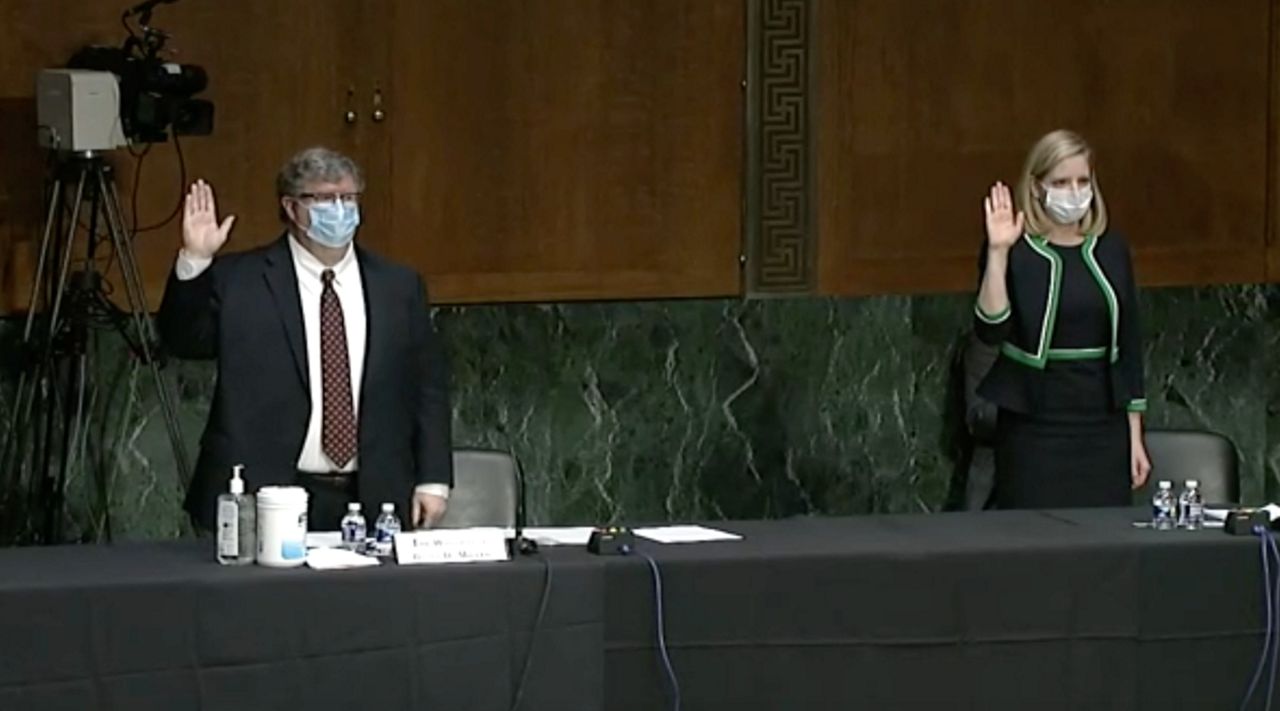WASHINGTON, D.C. — Food banks being overwhelmed, farmers feeling new pains, and workers having to worry inside processing plants and supermarkets are just some of the tolls the coronavirus is having on the food supply chain.
- Food supply chain being challenged by coronavirus
- Ohio Democrats want more federal relief to help keep stable
- Ohio Republicans beginning to worry about additional spending
“Right now, do we have enough food in the country? We probably do,” Representative Marcia Fudge (D, 11th Congressional District) said in a phone interview on April 16. “But it is going to be an issue going forward if we continue to lose farmers if we can’t keep our processing plants open, whether they be for pork or for chicken or for whatever else. It is going to ultimately be a major problem.”
Fudge, who represents the Cleveland area, is the only Ohio U.S. House member who sits on the House Agriculture Committee; and she chairs a subcommittee that oversees the SNAP food stamp program.
According to Feeding America, one in seven people across Ohio — and one in five children — struggle with hunger. And the need is growing because people are losing their jobs, schools that provide meals are closed, and the agriculture industry is being poked with holes as processing facilities try to contain outbreaks and restaurants remain shut down.
Rep. Warren Davidson (R, 8th Congressional District), who is a member of President Trump’s reopen America group, said he thinks the federal government should focus on bigger picture food chain relief, instead of sending out individual payments.
“It might actually be more effective at the very top to support some stability in the pricing mechanism,” Davidson said in a Skype interview on April 17. “So, I think the administration is taking a look at that, but we’ll see.”
Fiscal conservatives like Davidson are growing more concerned about the impact these relief efforts are having on the country’s deficit.
But Democrats like Fudge, who is also a member of the president’s reopen team, say now is the time for the federal government to step in.
Fudge wants SNAP benefits increased by at least 15-percent, minority communities to get a fair share of resources, and she has introduced a bill that would provide states with funding to connect farmers to food banks.
Fudge and Senator Sherrod Brown (D-Ohio) are also calling for the federal government to make sure meat processing plants remain safe after the president signed an executive order to keep the facilities open, despite some coronavirus outbreaks.
Brown, who sits on the Senate Agriculture Committee, wrote a letter to the president on May 1 asking for the order to be amended to require that plants that have already been closed meet OSHA and CDC guidelines before reopening.
“The White House has not responded,” Brown said in a video conference interview on May 5. “I don’t understand why the president thinks that it’s OK to order these meatpacking plants to reopen when many of them have done nothing to guarantee the safety of the meat that they’re packing…and also, these workers who are there do not have the kind of protection they need.”
While no Ohio meat processing plants have closed down, “JobsOhio” reports there are approximately 1,300 food manufacturing facilities across the state.








